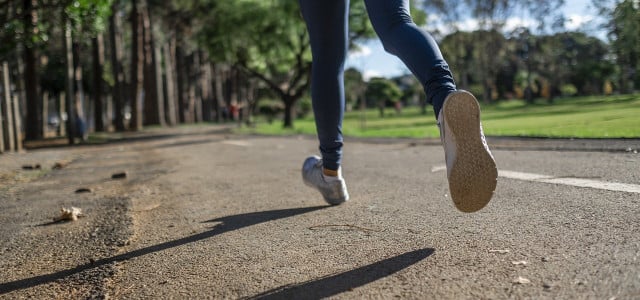
It is often extremely difficult to do anything at all when you are suffering from depression. But sport can bring about improvement. How it works and which sports are particularly effective.
Depression is one of the most common mental illnesses in Germany. They can be treated with psychotherapy, medication – and exercise.
It has been scientifically proven that physical activity can help alleviate depressive symptoms. And at the same time, it is extremely difficult for most sufferers to be active – depression means, among other things, being listless.
Benefits of exercise against depression
However, sport and exercise are often an integral part of depression therapy in clinics and in outpatient programs, explains Jens Kleinert, professor of sport and health psychology and currently head of the Psychological Institute at the German Sport University Cologne.
According to Kleinert, there are four factors that ensure the positive effect of sport in connection with depression: activation, improved mood, an improved self-concept and stronger social integration.
Become more active
Sport and regular physical activity help reduce fatigue and listlessness. “Depressed people feel more vital, alert and active,” says Kleinert, and are therefore better able to cope with everyday tasks.
experiencing feelings
According to the psychologist, people suffering from depression often feel an emotional emptiness. “Sport can often at least partially break through this.” This is because – depending on the sport – many different emotions are addressed. Kleinert cites emotional moments as improving, winning and losing, especially playing sports together.
Perceive yourself more positively
Those affected have problems with their self-esteem and their own body image. Sport and exercise help: “They learn new things or improve their skills, for example strength, mobility or endurance. As a result, the body is experienced positively and a positive development is perceived, which increases self-esteem.”
Experience community
Many depression patients are familiar with withdrawing, having little to do with others, and feeling isolated. Sport can also achieve improvements here, especially through exercise in a group, says Kleinert: “It doesn’t necessarily have to be a team sport – a yoga course or joint fitness training also leads to a community experience.”
Especially if you immediately cringe a little at the last point because team sports or yoga classes sound somehow difficult – there are also other ways to be physically active that are also very effective.
Which sports help the most against depression?
Basically almost everyone. “Exercise is an effective treatment for depression. Walking or jogging, yoga and strength training are more effective than other sports, especially if they are done intensively,” say the authors of a British meta-study. They examined 218 different randomized clinical studies with a total of 14,170 participants who suffered from depression and compared different sports with each other.
In fact, endurance training has long been considered particularly effective for depression because it positively influences neuronal changes, says Kleinert.
Strength and fitness training, for example, is also effective because patients strengthen their body concept and experience developmental progress positively. “Strength training in particular quickly leads to small successes that have a positive impact on your self-concept.”
How much exercise should you do?
The WHO recommends that healthy adults should exercise for 150 minutes per week at moderate intensity or 75 minutes at high intensity. This can also be used as a guide when treating a depressive disorder or depressive symptoms, according to the authors of the specialist article “Joy through sport and exercise in mental illnesses” published in the Praxis magazine.
“It is crucial that a form of sport and exercise is found in which those affected experience joy and which they do with fun and, above all, regularly and in the long term,” says sports psychologist Kleinert. A group and fixed times can help.
Read more on Techzle\.com:
- Overcoming depression: This is how you can help those affected
- Winter depression: 7 tips against winter blues
- Doing sports with a hangover? Whether exercise makes sense now
** marked with ** or orange underlined Links to sources of supply are partly partner links: If you buy here, you are actively supporting Techzle\.com, because we then receive a small part of the sales proceeds. More info.